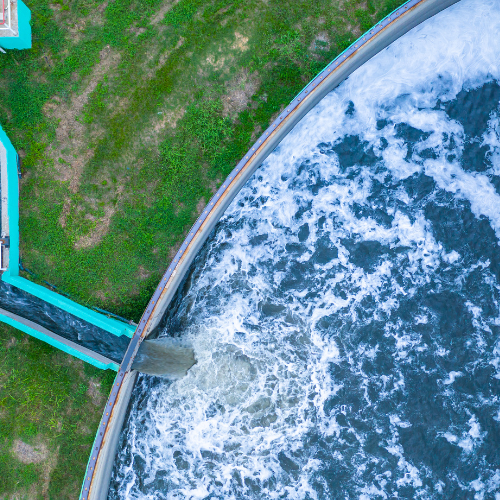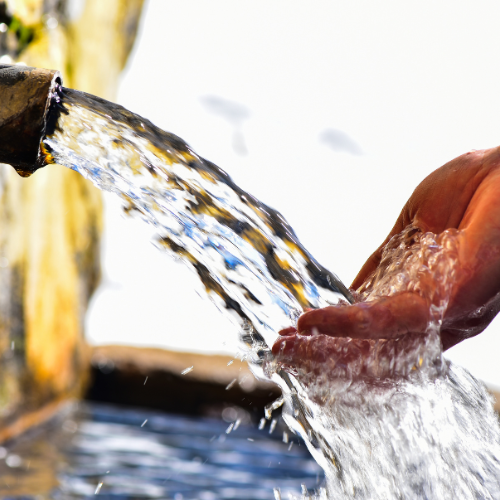Overcome Water Scarcity, Reduce Costs, and Navigate Regulations with Global Water Farms’ Sustainable and Reliable Water

DROUGHT

ACCESS

RISING COSTS
We understand the uncertainty irrigation districts face due to drought access rising costs .
ENVIRONMENTAL IMPACTS
Global Water Farms addresses:
- the accumulation of salts in the soil that lead to fallowed land
- salt load levels in irrigation water
- EPA and Army Corps of Engineer regulations on field runoff water
After initial treatment of contaminates to remove heavy metals and phosphates, our zero liquid discharge technology prevents the build-up of harmful salts by diluting irrigation water with distilled water. This process lowers the saline load to an ideal level for maximum crop production.
By integrating our desalination system, farmers can circumvent the economic losses from fallowed lands and enhance the quality of their produce.
Traditional methods of water disposal in agriculture can lead to significant environmental damage, prompting strict EPA and Army Corps of Engineers bans on agricultural runoff. Global Water Farms can eliminate field runoff and improve water supplies by purifying and recycling irrigation water. This process reduces the wastefulness associated with traditional irrigation and promotes a more sustainable agricultural practice.
By ensuring that treated runoff is clean and free of salt, our technology supports environmental compliance and contributes to the broader goals of sustainable water management.




ACQUIFER ACCESS
Natural aquifers, formed over millennia, hold a finite amount of water and recharge slowly at rates of 1-2% per year.
Over pumping has led to aquifer depletion, resulting in significant land subsidence, with areas like California’s Central Valley experiencing land drops of up to 70 feet. This subsidence severely impacts the aquifer’s ability to recharge and store water, making it increasingly difficult for irrigation districts to rely on these underground reserves. At this rate it would take the Central Valley Aquifer over 1,000 years to recharge naturally without additional pumping.
When surface water becomes scarce, over pumping the potable aquifers is draining these resources.
Our technology provides a sustainable alternative by reducing the reliance on both potable aquifers and surface water canals, which lack the capacity to meet the increasing demand. By utilizing advanced desalination technology that mimics the natural water cycle, Global Water Farms produces high-quality distilled water from previously unused brine/brackish aquifers, thereby alleviating the pressure on overtaxed potable aquifers and ensuring a consistent water supply.
This not only prevents further land subsidence by reducing the need for groundwater extraction but also secures water availability for agricultural operations independent of fluctuating surface water allocations. By integrating our solutions, agricultural stakeholders can maintain resiliency and sustainability without contributing to the depletion of critical potable aquifers.
RISING COSTS
The agricultural industry is grappling with the escalating challenges and costs associated with water scarcity, exacerbated by drought and climate change. Recent state mandates requiring metering of aquifer water withdrawals and stringent government regulations on water quality underscore the critical nature of these issues. These measures, while essential for sustainability and environmental justice, increase operational complexities and costs for farmers.
The scarcity of water not only raises its value, necessitating significant expenditures by the agricultural sector, but also leads to increased competition for water rights, now being accumulated by banks and investors. This shift emphasizes that, although reluctant, the agricultural industry must acknowledge the real value of water and invest in sustainable usage practices to secure long-term viability.

Why Irrigation Districts Need a New Way Forward Now
Global Water Farms offers a sustainable solution to the pressing water challenges facing irrigation districts by providing a system that addresses environmental impacts, aquifer depletion, water recycling, and the rising costs associated with water scarcity.
Our advanced desalination technology, which mimics the natural water cycle, produces high-quality distilled water from brine/brackish sources. This innovation not only alleviates pressure on overtaxed potable aquifers, but also ensures a consistent and reliable water supply. By partnering with GWF, irrigation districts are able to improve water quality and reduce dependency on unpredictable surface water supplies.
Environmental concerns, particularly those related to agricultural runoff which can include phosphates, heavy metals, and other contaminants, are effectively managed with our system. Global Water Farms eliminates harmful runoff by recycling and purifying water on-site. This significantly reduces the environmental damage typically associated with traditional irrigation methods and promotes a more sustainable agricultural practice and removes salt from the environment.
By preventing further land subsidence and reducing the need for groundwater extraction, our technology helps maintain soil integrity and prevents the financial losses associated with fallowed land. Desalinated and pollutant-free water from our systems help ensure compliance with strict environmental regulations, such as those imposed by the EPA and Army Corps of Engineers on agricultural runoff.
By providing a sustainable and economically viable water source, Global Water Farms helps mitigate the rising costs of water. Our systems turn the necessary expense of water into a sustainable investment, ensuring that farmers can maintain crop production without the burden of competing for increasingly scarce resources.
Global Water Farms positions itself as a key player in transforming water management within the agricultural sector. Our technology supports long-term agricultural resilience, aligns with regulatory requirements, and addresses the environmental and economic challenges of modern water use.
By Partnering with Global Water Farms Irrigation Districts Avoid...

Aquifer Depletion

Bond Elections

Effluent Disposal
Project Financing - P3
Partnering with Global Water Farms (GWF) offers significant advantages for municipal districts, particularly through its innovative Public Private Partnership (P3) sales model. By engaging in this partnership, irrigation districts can streamline the process of securing new water supplies often without the cost and time involved in a bond issue election. Through the establishment of legal commercial entities (LLCs) with GWF as the Operating Partner, irrigation districts can ensure the smooth execution of water purchase agreements (WPAs) over an extended period.
In this collaborative model, GWF constructs the water farm unit and sells it to the LLC, which is financed by the sale of 90% of the entity’s equity. Subsequently, the LLC enters into a WPA contract with the end user for water delivery spanning 40 years. This strategic approach empowers utilities to circumvent the need for bond sales, alleviate the burden of facility maintenance, and mitigate unforeseen costs throughout the duration of the contract. By partnering with GWF, irrigation districts can unlock a sustainable and cost-effective solution for meeting their water supply needs while optimizing financial resources and operational efficiency.
